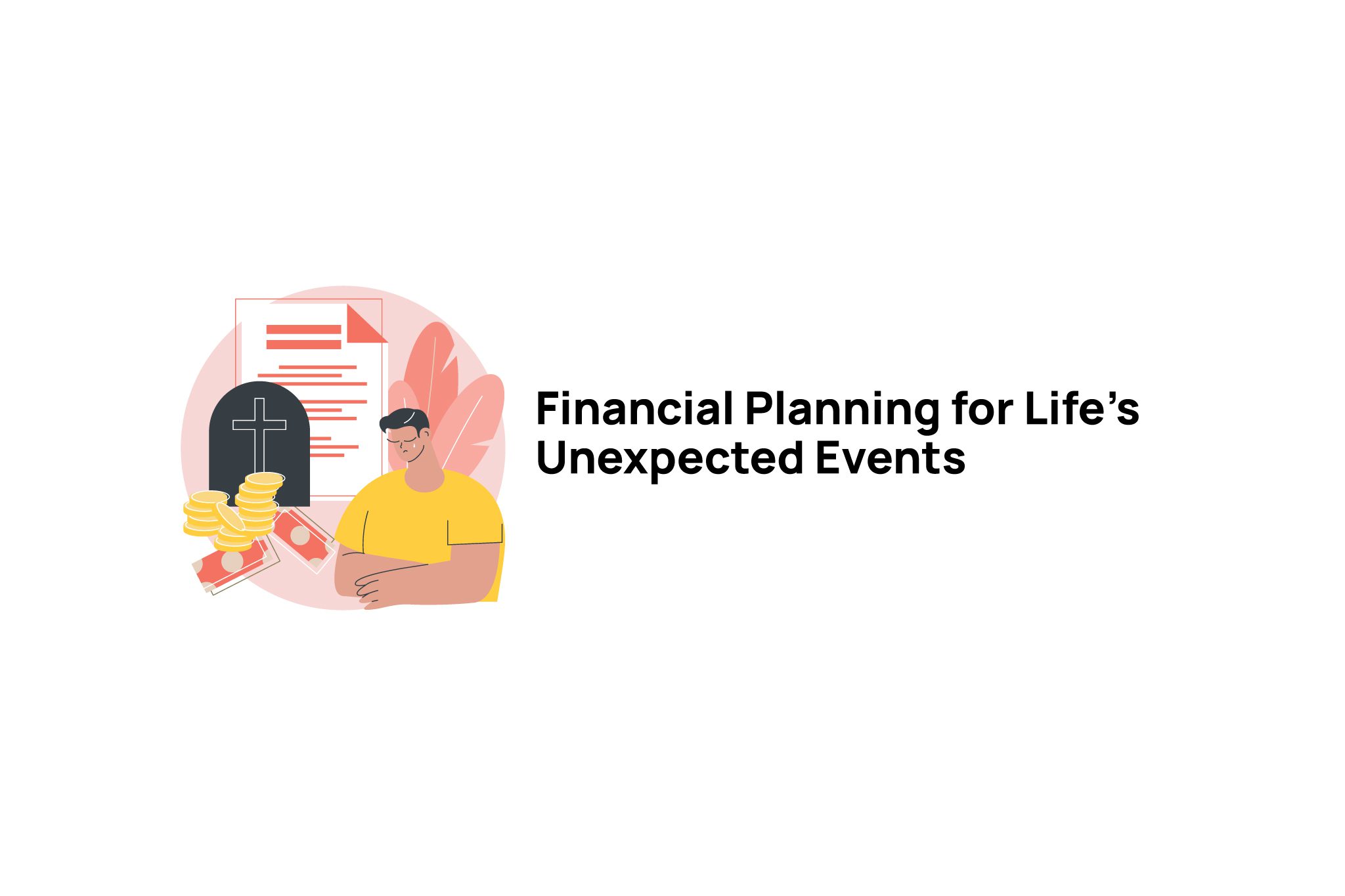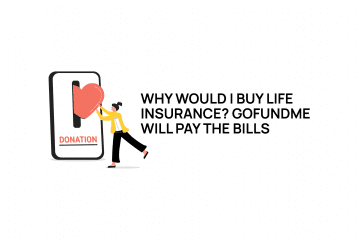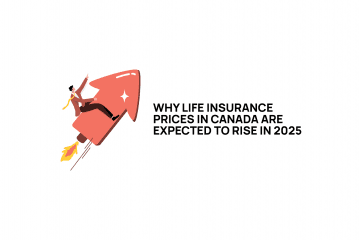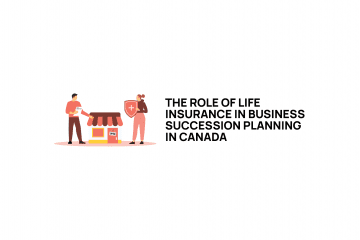In a previous blog entry, we had the chance to introduce the idea of financial planning basics. We introduced the three categories of planning opportunities that should be considered when building your financial plan. That was a bit of a 10,000-foot view of the planning process to give a general idea of things to think about when you are planning for the future. In this article, we are going to drill down a bit and address financial planning for life’s unexpected events that you can plan for, what we would suggest as tools that you can use and why it is important to have a plan in place to cover you in the event that you have to deal with a curveball that life throws your way.
In This Article:
- What do we consider an ‘Unexpected Event,’ and why are they important?
- Curveball Number 1 – Unexpected Job Loss
- Curveball Number 2 – Unexpected and Premature Death
- Curveball Number 3 – Prolonged Disability
- Curveball Number 4 – You Suffer a Critical Illness
- Conclusion
What do we consider an ‘Unexpected Event,’ and why are they important?
Planning for the future would be easy if today you knew everything that was going to happen to you for the rest of your life. If you knew today that you were going to have your job downsized in the year 2037, that you would suffer a heart attack in 2032, and that you would die in the year 2060, your life would be easy to plan for. The problem is that we don’t know what is going to happen to us in the future. We also live in a world where the average Canadian will have 15 different jobs over their lifetime and that in Canada, about 14 people over the age of 20 are diagnosed with heart disease every hour. Changing employers (by choice or not) and significant health issues are examples of unexpected events that can have a huge impact on your financial well being. I have mentioned this before as well, but the sad reality is that many people live based on the belief that these types of things happen to other people, not themselves. It isn’t until someone in their close circle of family and friends has it happen to them that people tend to realize that they aren’t invincible and that they truly appreciate that there is an aspect of randomness to life’s unexpected events that you need to plan for. Let’s dive deeper into some of the unexpected events that can happen in your life and what tools are available to you for planning how to deal with them.

Curveball Number 1 – Unexpected Job Loss
This is an event that can hit someone totally out of the blue. I have spoken with many clients over the years, and they went to work in the morning without even a hint that today would be any different than yesterday. The issue becomes that it does turn out to be different. Losing your job isn’t always the result of poor employment performance personally. You could be the victim of corporate restructuring, downsizing or simply have a position that has become obsolete due to changing circumstances. If this happened to you yesterday, are you comfortable with how you would be able to handle things today? This is where planning can make you more prepared for things. It is often recommended that you have between three and six months’ worth of your living expenses saved in an emergency fund that can help you weather the storm if you are faced with something like the unexpected loss of a job. The reality is that without planning on how to build up an emergency fund, many people don’t feel like their savings would be enough. The plan for an emergency is to utilize credit to fill in the gaps. By building a proper financial plan that includes the idea that an emergency fund is needed to offset unexpected hiccups in your life, you will be well-equipped to manage these types of events.
Get a free quote
Curveball Number 2 – Unexpected and Premature Death
The idea that someone will pass away unexpectedly is something that no one wants to think about. Sometimes I like to offer a bit of a behind-the-scenes glance at things. This is one of those times. For years when life insurance agents were trained on how to talk to families about insurance planning, they were trained to speak about an unexpected death that had happened yesterday. Since no one had actually died, the idea was that the situation was now theoretical, and that made it easier for everyone to discuss. The reason that the insurers trained agents to talk this way is that it is essential to plan as if something had happened. This makes it so that if a cheque was being delivered today, it would cover the expenses it needed to. When I spoke to clients about how important planning this way is, I used to ask them if they knew when they were going to die. If they don’t, we need to plan as if it will happen unexpectedly. My follow-up joke was always that if they did know when people were going to die, the life insurance company would pay a fortune for that information.
The real issue is that an unexpected death is a worst-case scenario for most families. It can have a devastating personal and financial impact on your family. Aside from the emotional impact of losing a family member, there are repercussions that echo throughout your life as surviving family member. To offset the financial impacts, your insurance advisor should work with you on a needs analysis. This is planning based on what your family needs financially as if you were no longer there today. Things like paying off your mortgage, education savings, income supplements and other debts should all come into play. What needs are permanent, and which ones are temporary? They should then help you design an insurance plan made up of permanent and term insurance that offsets your needs in the most efficient manner. And yes, you do have to plan as if something had happened to you yesterday, and the advisor is delivering a cheque to your family today. Here’s the reality, we plan for today, and if something unexpected happens in the future, we know that today’s debts and needs are looked after. Planning with a shortfall today doesn’t make sense. Better to deliver a few extra dollars in the future than not enough tomorrow.

Curveball Number 3 – Prolonged Disability
When you look at the assets that people have, one of the biggest ones that everyone has is their ability to go to work every day. People rarely think of that, though; they think of their house, their cars or other material goods as their biggest asset. Without the ability to go to work, though, supporting your lifestyle becomes far more difficult. The other thing that many people don’t think about is that if you do become disabled and can’t go to work, your income disappears, but the expenses that are associated with your life don’t end. Think of it this way, if you get sick and die, the costs associated with your life die with you. If your income ends due to a disability, but your expenses continue, you may be on the road to real financial hardship. Disability insurance is the key to keeping your lifestyle intact. Historically, Canadians relied on the benefits plans from their jobs to provide them with long-term disability coverage. In recent years with the shift towards more and more people working for smaller employees that offer limited (or no) benefit plans, this is less frequently the case. The good news is that there are personally owned disability insurance plans that someone can apply for. When they are in place, if you are off work and meet the definition of disability from the policy, your income will be replaced. It won’t be the full amount that you’re used to, but it will be enough to help maintain your lifestyle even while you are unable to go to work.
Curveball Number 4 – You Suffer a Critical Illness
Healthcare advances are a wonderful part of living in today’s times. The chances that you will suffer a severe illness in your lifetime are statistically very high. The trade-off is that with improvements to healthcare, the odds that you will survive that serious illness are higher than they have ever been. What was noted by healthcare professionals, though, was that while more and more people survived these events, they were left suffering financially after they had recovered. This led to a doctor in South Africa developing the idea behind a new insurance policy in the 80s. The advent of critical illness insurance has provided a way to supplement your financial situation as you recover from an unexpected and severe medical event. The base policy will cover you if you suffer a heart attack, stroke or are diagnosed with life-threatening cancer. Survive the predetermined amount of time after the event, and you receive a lump sum of cash that has no income tax implications. How does this type of planning help Canadians? Many people in Canada have most of their savings in the registered savings environment. If you need to make a withdrawal from this, it triggers income tax owing for the year in which you withdraw the money. If you don’t have the emergency fund that we talked about earlier saved up, then the benefit payment from a critical illness insurance plan will provide you with cash to help supplement your financial position while you take the time to recover from your illness.
Conclusion
The life and health insurance industry exists because life has these unexpected events in it. When you look at risk management, there are a few ways to offset the risks in your life. One of the ways to handle risk is to transfer the burden off yourself and onto another entity. By paying an insurance company a premium, they agree to take on the risk associated with the covered conditions. We pay for car insurance because of the potentially astronomical costs of an injury in an auto accident. This is risk transfer. The same situation applies to your personal finances when planning for unexpected events. Figure out the need and transfer the risk to an insurer to make sure that when your life spins an unexpected event your way, you feel good about how you are set up to handle it.




